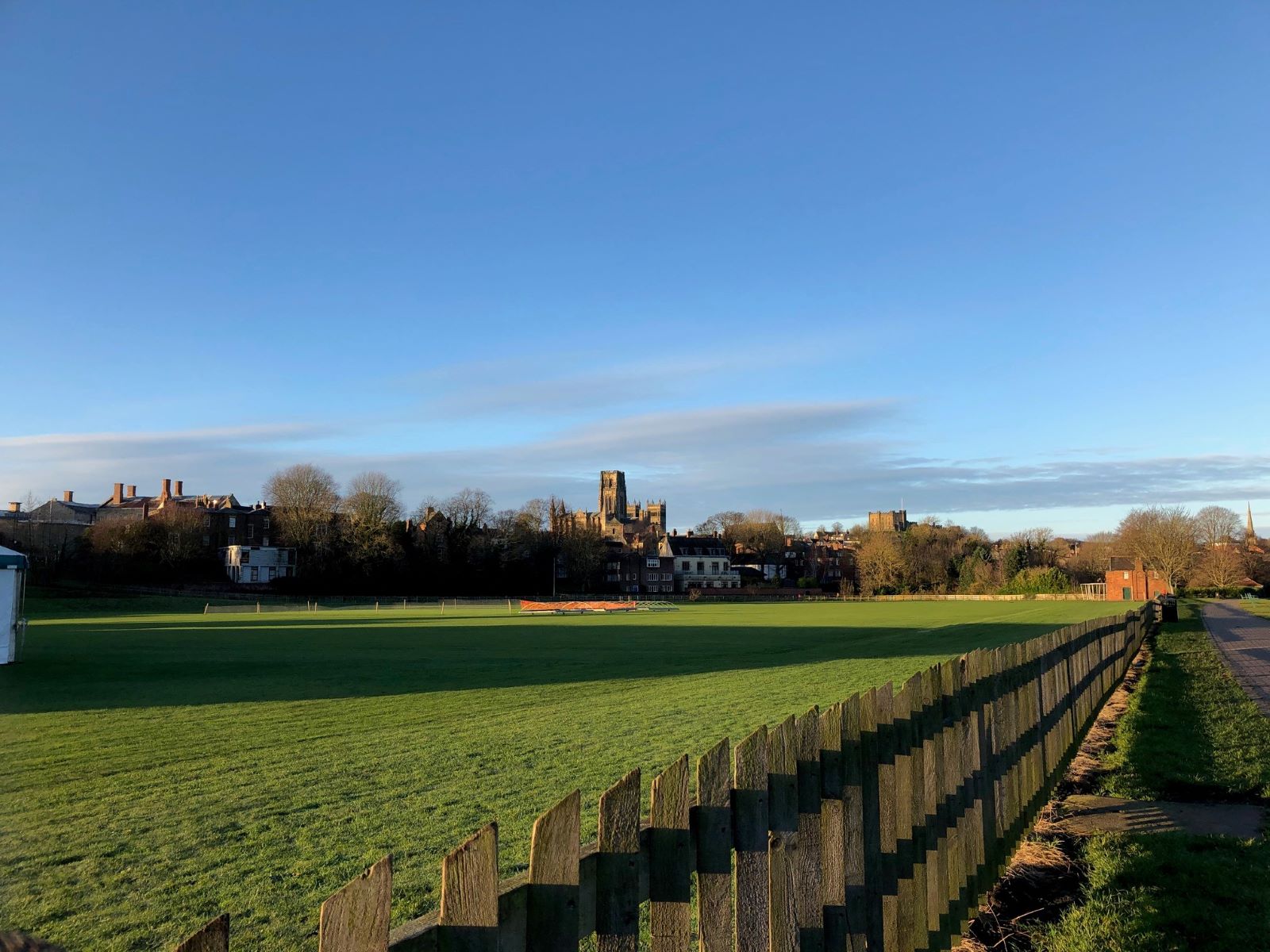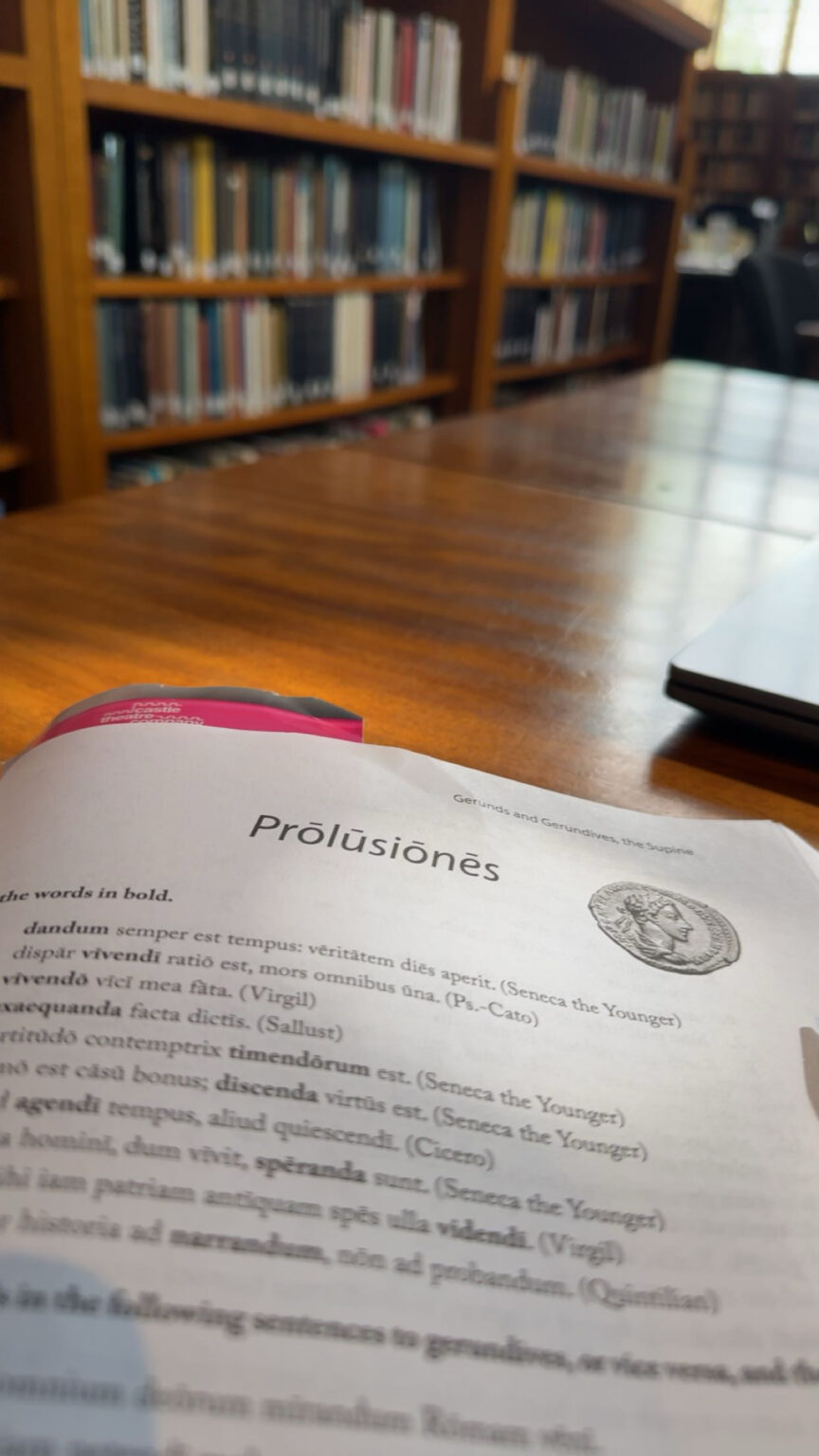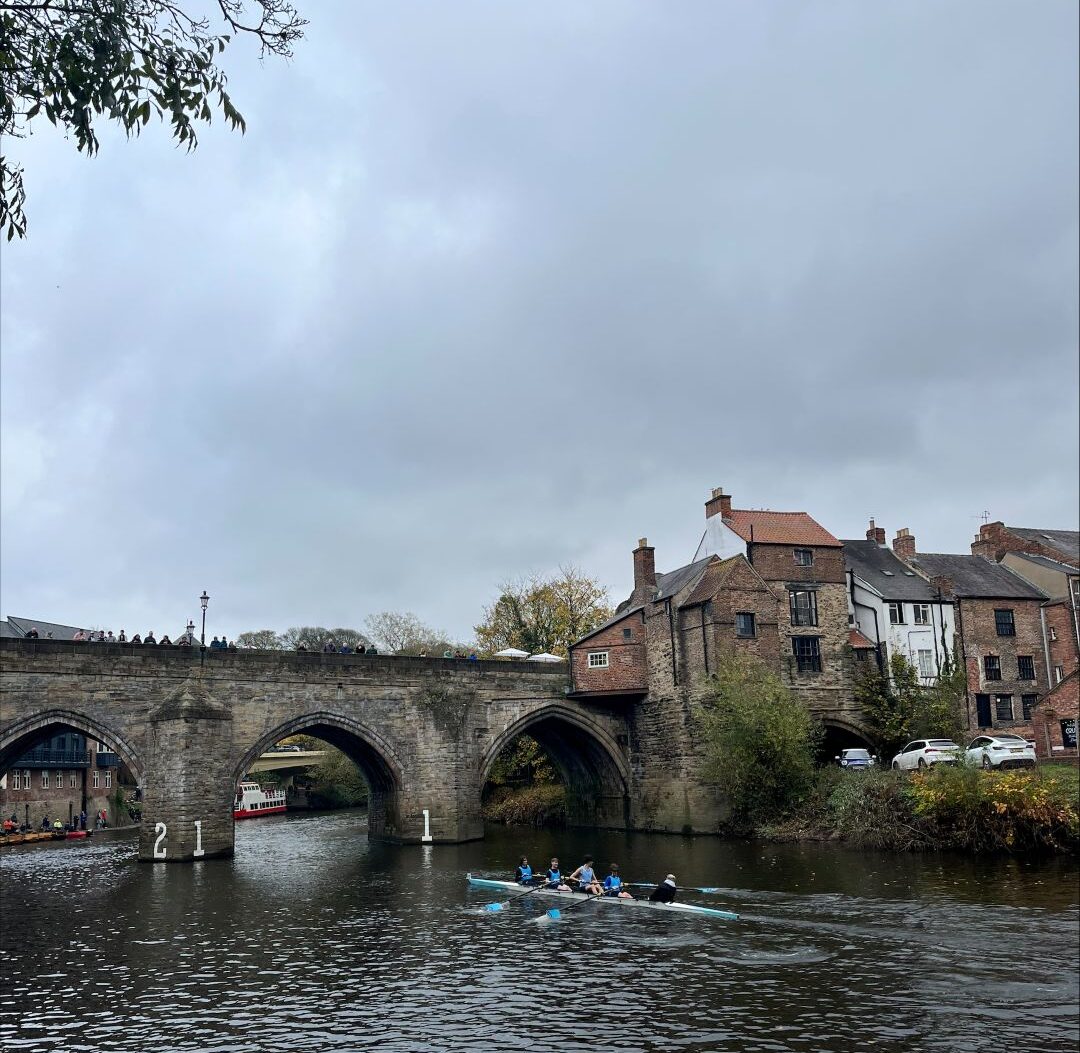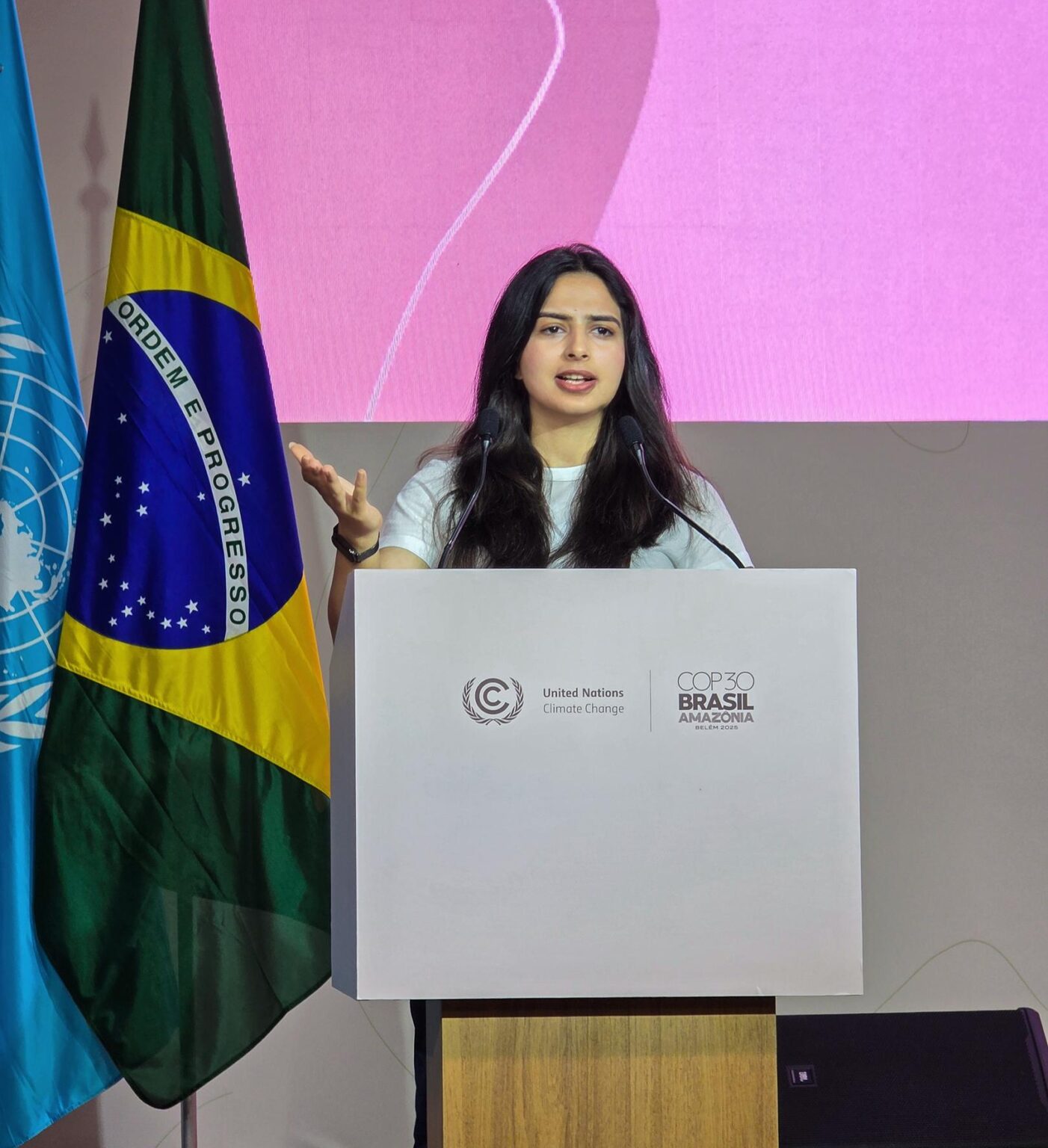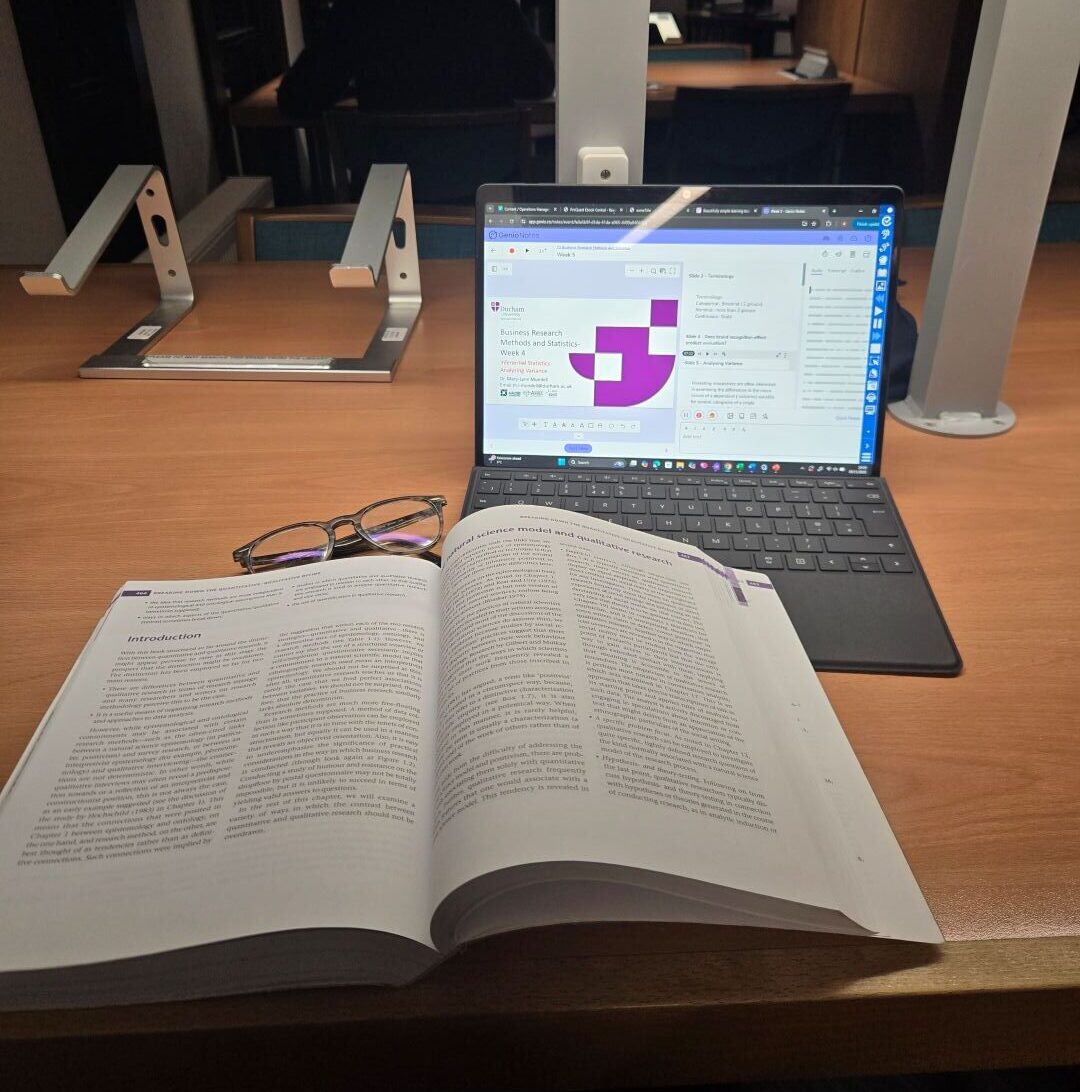An unusual start
I was a student at Durham for the 2020-21 academic year, so I had a slightly atypical experience to say the least! But despite the COVID-related restrictions, I still made new close friends through my course and picked up skills I use every day in my job.
Why Durham
I completed a master’s in social research methods in the Department of Sociology (with a specialisation in Social Policy). The course at Durham stood out for the range of methods taught, with several options across both quantitative and qualitative methods. I also liked the idea of studying at a North East university, having moved away from the region for my undergraduate.
Committed staff & a sense of community
Nearly all my teaching was delivered remotely and I didn’t have the oppourity to meet many of course mates in person until my degree was almost over. What really stood out to me, however, was how committed the staff were to making sure we still had the best experience possible. This was not easy with the entire university adapting to online education at short notice. But we made the best of it and I didn’t feel I missed out on learning that I would have experienced otherwise.
Likewise, our course developed a strong feeling of community despite the challenge of not being able to meet in person. An eclectic range of online activities, from quizzes to Among Us, meant that we still connected despite not seeing each other face to face.
Research and opportunities
One of the best parts of the master’s for me was the significant amount of time devoted to a research dissertation. This allowed me the space to really dive into my topic in depth as well as experiment with different analytical techniques to see what worked. It was excellent preparation for if you wanted to purse a PHD in social science as well as for any kind of job that uses research methods.
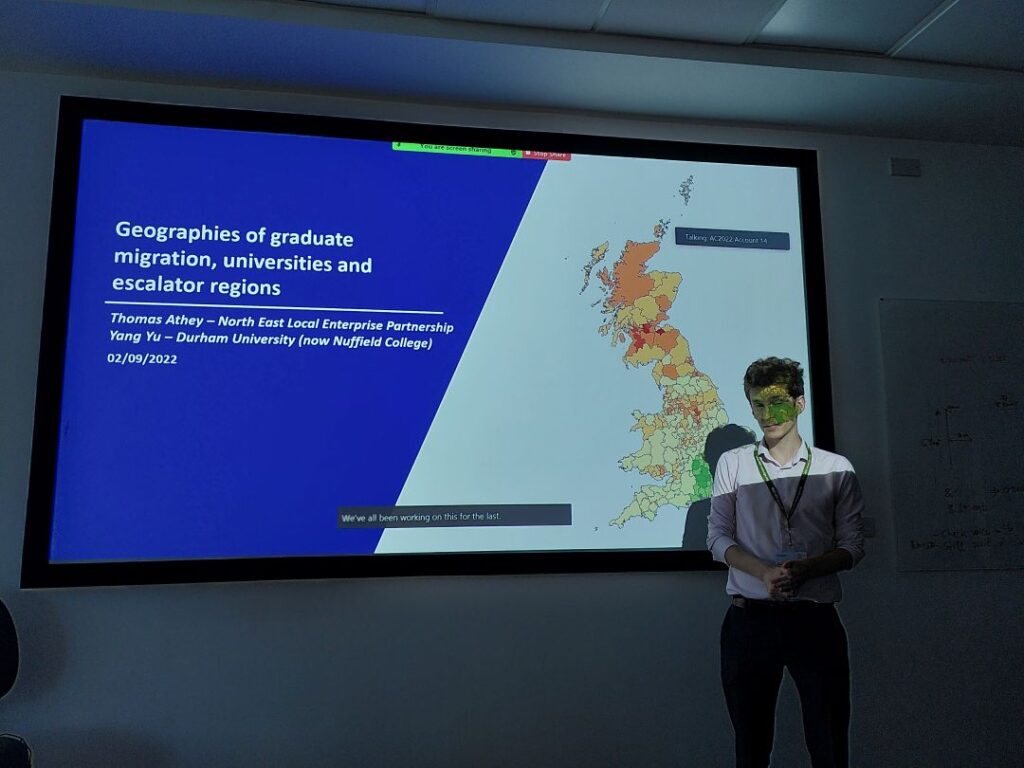
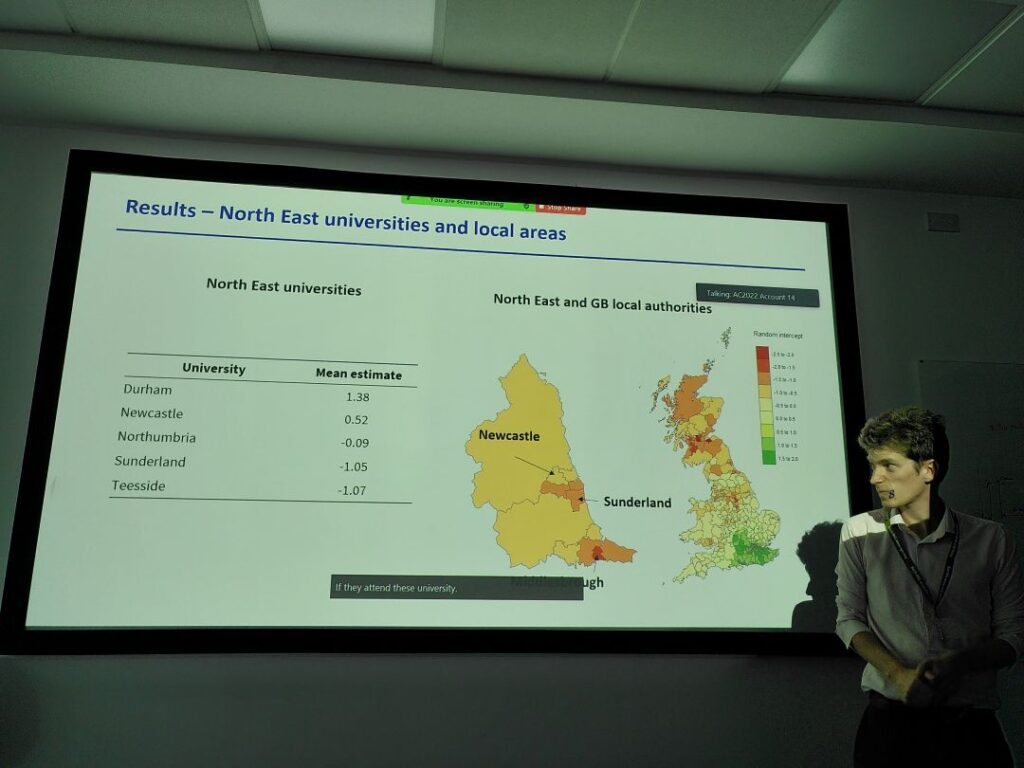
I was later lucky enough to have the chance to present the findings from my research at the 2022 Royal Geographic Society conference in Newcastle. This was organised by one of the master’s programme directors, Dr Sol Gamsu, a member of staff in the Sociology Department. I also co-authored a paper on the same topic with Dr Yang Yu, which was published in the journal Social Research and Stratification. This would not have been possible without the time I had to work on my research for the dissertation.
My career
The skills I gained have been very useful in my career after Durham too. My first role was to work as an Economic Analyst at the North East Local Enterprise Partnership, where I was responsible for analysing a wide range of datasets on the North East economy. My foundation in quantitative methods and research design meant I had the confidence to set research questions and produce insight from this data.
Since then, I have joined the Ministry for Housing, Communities and Local Government as a social researcher. Here, I have had an opportunity to put many more of my research skills into practice, including the skills in RStudio and regression modelling that I learnt during my dissertation. I was lucky that my dissertation supervisor, Sol Gamsu, provided access to large-scale administrative data for a research project he was working on, so I got to work with real data on hundreds of thousands of university students and graduates in the UK.
Overall, I am really pleased with my decision to study research methods at Durham and would encourage others to do the same – even if I wouldn’t necessarily recommend doing it during a pandemic if possible!
Discover more
Feeling inspired? Take a look at our Sociology Department
Download our latest prospectus and college guide here.
To see more of Durham student life, follow The Durham Student on Instagram, TikTok and YouTube.

Thomas Athey
Hi, I was a master's student at Durham during the pandemic, which set me up for success in my career. I am now working in the Ministry for Housing, Communities and Local Government as a social researcher.



